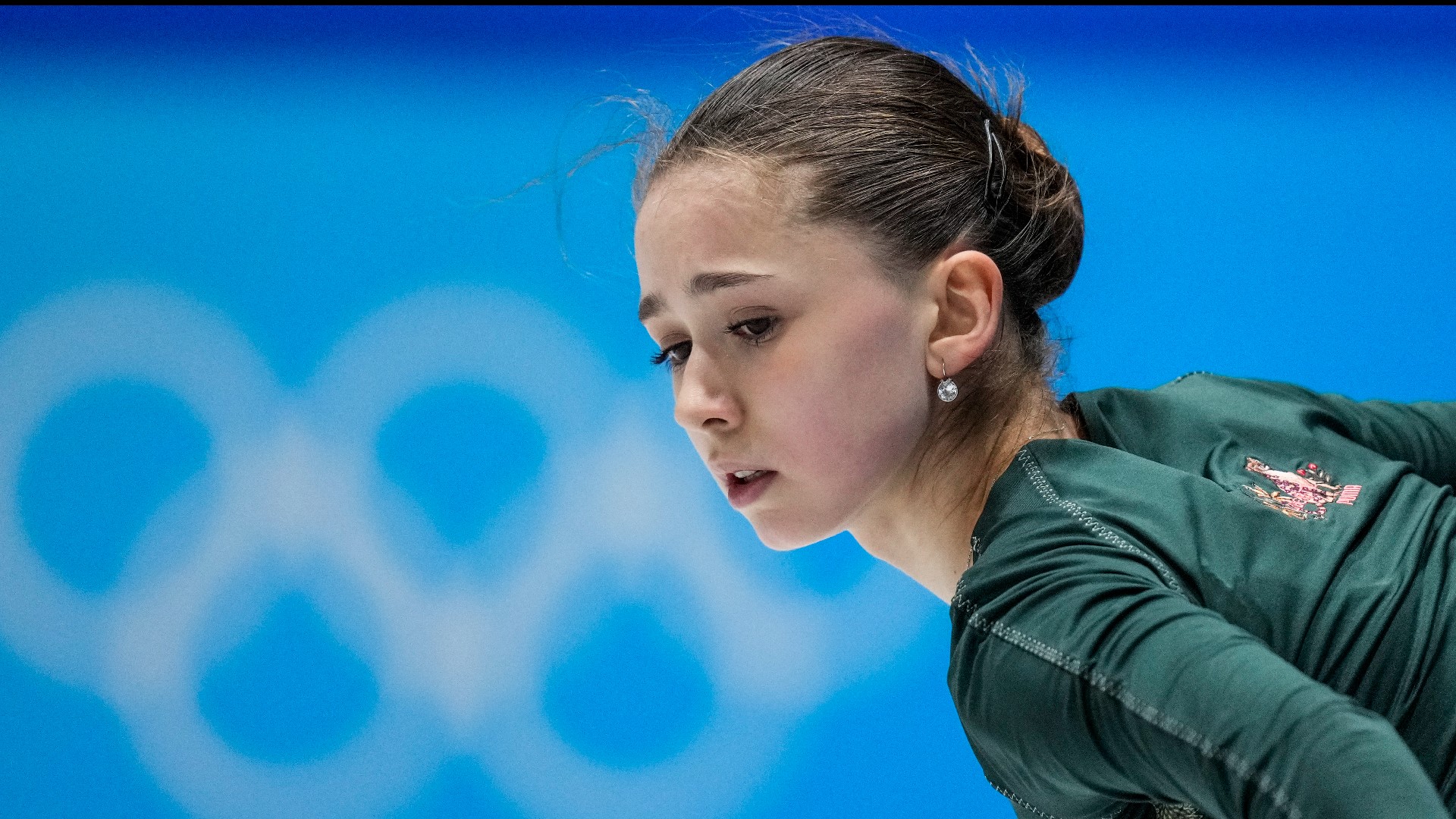BEIJING, China — The biggest barrier between Russian figure skating star Kamila Valieva and another Olympic gold medal is no longer a panel of judges holed up in a Beijing hotel room but rather the teammates she practices with every day.
That would be Alexandra Trusova and world champion Anna Shcherbakova.
Together, the trio coached by Eteri Tutberidze make up the “Quad Squad,” a group of young dynamos that are among the few women in the world capable of landing four-revolution jumps.
And it's precisely those high-flying, jaw-dropping jumps that could make the 15-year-old Valieva and her 17-year-old cohorts the first women to sweep the Olympic podium for their country.
Valieva has continued to practice with Trusova and Shcherbakova for the past week, even as the Court of Arbitration for Sport weighed whether she would be allowed to compete in Capital Indoor Stadium in the women's short program Tuesday night.
Shortly after helping the Russian skaters competing as ROC, short for Russian Olympic Committee, win team gold last week, a test that Valieva took at nationals in December was flagged for a banned heart medication. She was provisionally suspended by Russia's anti-doping agency, then cleared to compete the next day, at which point her case was referred to the CAS committee in Beijing.
It ruled Monday that Valieva, as a “protected athlete” by virtue of her age, would suffer “irreparable harm” if she was not allowed to compete. And while she could still lose her team gold once the case is arbitrated later — and any other medal she wins — Valieva for now is cleared to pursue her Olympic dream.
"Tomorrow as a whole country we will cheer for her and for all of our wonderful figure skaters in the individual event,” the Russian Olympic Committee trumpeted on Twitter late Monday.
Not everyone will be cheering for Valieva and her teammates, though.
The overwhelming response from critics, particularly those in the close-knit figure skating world, has been harsh toward both the CAS decision and the country at the root of it. After all, the team representing Russia still can't be called “Russia” at the Olympics because of a state-sponsored doping program put in place for the 2014 Sochi Games.
“If that's their choice, I guess that's the right one,” 16-year-old Alysa Liu, who will perform just before Valieva on Tuesday night and is the best hope for an American medal in the women's competition, said upon learning of the CAS decision.
Her father, Arthur Liu, was not as diplomatic.
“She tested positive for a banned drug. What's not clear about it?” he said to The Associated Press. "She should be out. That is as simple as that. What kind of message are they sending to millions of young boys and girls in sports — particularly figure skaters? That cheaters are allowed to compete in the Olympics, the holiest competition on the planet.
“It totally destroys the Olympic spirit.”
Arthur Liu took particular aim at Tutberidze, who has earned a reputation for pushing skaters to the extreme, then discarding them when they are no longer of use to her. Several of her athletes, including 2014 Olympic gold medalist Yulia Lipnitskaya, have been forced to retire before the age of 20 because of injuries their young, developing bodies incurred in training.
“They are the ones who are most at fault,” Arthur Liu said. “I'm not trying to blame it all on Valieva. Her coaches, doctors, whoever gave her the drugs need to be prosecuted — criminally prosecuted, to be honest. They should be banned forever.”
That may happen down the road. In the meantime, Valieva and the rest of the Quad Squad are set to take center stage.
Between them, the trio of women swept all five Grand Prix assignments they attended this season, along with the podium at last month's European championships. Valieva set the world record in winning the Finlandia Trophy in October, shattered it three weeks later at Skate Canada and then set a new mark of 272.71 a month later at the Rostelecom Cup.
Nobody in the world has come close to any of those scores, and those closest are her teammates.
In fact, the top six women in the world — and seven of the top eight — represented Russia at international events, and six of those skaters are under Tutberidze's exacting, often-domineering tutelage at the Sambo-70 club in Moscow.
That's why not only is Valieva the favorite to win gold, Shcherbakova and Trusova are favored to join her on the podium.
It would be the second sweep in Olympic figure skating after Hayes Alan Jenkins took gold, Ronnie Robertson claimed silver and David Jenkins earned bronze for the U.S. team in 1956 at Cortina d’Ampezzo, Italy.
The closest rival to the Russian athletes this season has been Kaori Sakamoto of Japan, who will skate last on Tuesday night. The next is Alysa Liu, who finally will get to compete at the Olympics after she missed the age cutoff for Pyeongchang.
“I don't really think about being against others in competition. When you say, ‘beat the Russians,’ it's not my goal,” she said. “My goal is to skate how I want to skate. And I feel like that's just my goal.”

